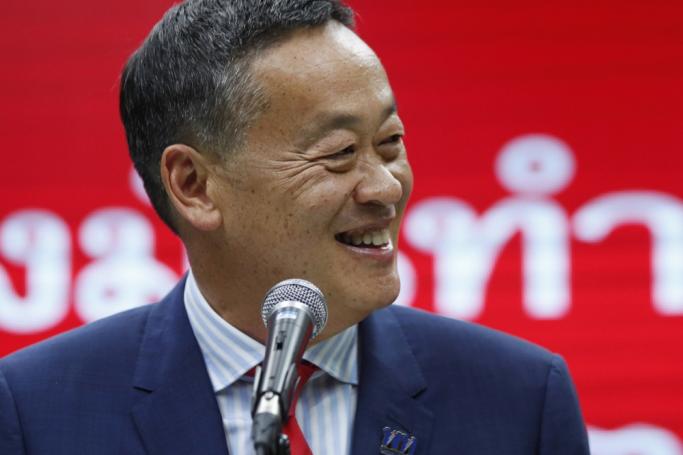Srettha Thavisin's confirmation as Thailand's 30th prime minister caps a swift and unexpected journey from the boardroom to the summit of political power.
Having helmed one of the kingdom's biggest real estate developers, the 61-year-old traded in his business suits for campaign trail casual wear when the Pheu Thai party named him as one of their three candidates for the top job.
The respect with which he is held by Thailand's powerful business community has sparked hopes he might kick-start the sluggish economy after a decade of drift under military-backed governments.
Srettha studied in the United States and entered politics having built fabulous wealth after heading one of Thailand's largest property firms, Sansiri.
His towering 1.90-metre (six-feet-three) frame was hard to miss during campaigning for the May election, although he cut a rather less glamorous and energetic figure than his fellow Pheu Thai candidate Paetongtarn Shinawatra, the daughter of ex-PM Thaksin Shinawatra.
Srettha sought out younger Thais with messages of education reform, LGBTQ rights, environmental protection, and measures to address Thailand's yawning inequality.
A dedicated Liverpool fan, he used TikTok to demonstrate his football skills, telling voters: "In football and politics... people cannot play alone, you have to play as a team."
His real estate firm diversified in 2017 into hospitality, tech and lifestyle businesses, spending some $80 million investing in boutique hotel chain Standard International, luxury magazine Monocle and other ventures.
Being associated with a number of "hip young brands" strengthened his appeal to a younger generation, Bangkok food and travel writer Vincent Vichit-Vadakan, who has chronicled Srettha's business career, told AFP.
"He can say he's hanging out with cool kids."
His relatively recent move into politics means he will likely struggle to impose his will on Pheu Thai, a party still seen as a vehicle for the Shinawatra clan.
He lacks "a direct base within the party", analyst Thitinan Pongsudhirak told AFP.
"That weakens his standing... he will be tested from the outset," he said.
Thitinan said the party's "old boys' network" would have its own agenda and Srettha's success depended on whether he could marshal his own support.
"What will be interesting is to what extent Srettha will be able to bring in his own people," he said.
Srettha's rise to prime minister came after junta-appointed senators rejected Pita Limjaroenrat, whose Move Forward Party (MFP) won the most seats in May.
Pita's pledges to reform royal defamation laws and tackle powerful business monopolies spooked the kingdom's conservative elite.
Pheu Thai then forged a new coalition without MFP, allying with army-backed parties. The sober businessman in Srettha -- who is married with three adult children -- was then seen as more palatable to the establishment.
The Thai stock market reacted favourably to his election, rising nearly 20 points, while Sansiri shares were up almost 7.5 percent.
AFP












